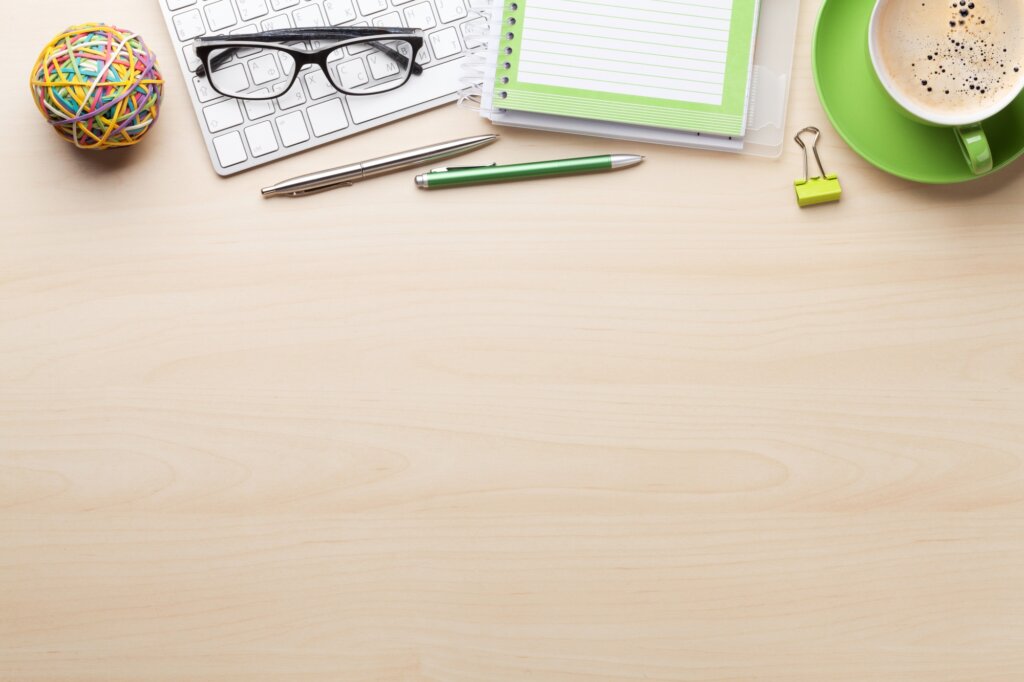Your office desk isn’t just a place to work—it’s a window into what’s going on inside your mind. In 2025, with over 84% of workers reporting at least one mental health challenge in the past year, it’s time to take workspace wellbeing seriously. Let’s unpack how your desktop reveals more than you think—and how smart optimization can boost focus, mood, and overall wellbeing.
🌀 1. Is Your Desk Messy? It Could Be Messing with Your Mind
Studies show cluttered desks are a major source of stress:
- A Brother UK survey found 31% of workers linked a messy desk with increased stress, while 41% believed tidy spaces improved productivity.
- The Princeton Neuroscience Institute discovered clutter overloads working memory and reduces attention.
- WebMD reports clutter not only disrupts focus but contributes to frustration, especially in neurodiverse individuals .
Takeaway: Decluttering isn’t about vanity—it’s therapy. A clear space leads to a clearer mind.
🧠 2. The Goldilocks Zone: Enough Order to Focus, Enough Chaos to Create
While cluttering hurts focus, total sterility can suppress creativity:
- A University of Minnesota study revealed messy desks can boost innovation by 28%.
- Time magazine highlights that disorder sometimes sparks groundbreaking ideas .
Balance Tip: Keep everyday essentials in order, but allow room for experimentation—a visual buffer of creative potential.
💡 3. Ergonomics: Good for the Body—and Mind
It’s not just about space—it’s about comfort:
- The WELL Building Standard promotes ergonomic furniture and natural lighting to support mental health.
- Berkeley research indicates well-designed environments boost job satisfaction from 42% to 70%.
Your posture and comfort don’t just prevent pain—they reduce stress hormones and improve focus.
Desk Upgrade Checklist:
- Adjustable chair and desk
- Screen at eye level
- Anti-glare lighting
- Natural or plant-enhanced elements
🧰 4. Daily Desk Habits Shape Mental Wellbeing
Simple desk routines can have big effects:
- Daily Clean-Ups: Tidy at day’s end to give your brain an official “rest” signal.
- Essentials Only: Limit items to 5–7 daily tools.
- Monthly Declutter: Archive or store away old papers.
- Functional Zones: Separate tech, paper, and personal areas.
- Nature Breaks: Add a low-maintenance plant—improves mood and productivity.
- Cable Management: Declutters your visual field and keeps you grounded.
These little habits reduce decision fatigue and mental chaos—and sustain long-term wellbeing.
🔄 5. Routines, Reset & the Mental Health Connection
Workplace stress is high:
- Over 56% of employees report burnout in the past year.
- 47% say their mental health improved through remote/hybrid working.
- Yet, 78% want greater mental health resources at work.
Regular desk rituals—5-minute tidy breaks, midday stretch, end-of-day resets—aren’t luxuries; they’re essential mental health first-aid.
📦 6. Messiness Reveals Emotional State
What your desk reflects:
- Chaos = Overwhelm: Studies show clutter correlates with emotional exhaustion.
- Perfectionism = Pressure: A sterile desk may indicate high stress and control-seeking .
- Intentional Personality: A balanced workspace—with personal items and order—indicates strong emotional regulation.
Your desk is a barometer. Take it as a sign—not of failure, but of what your brain needs.
🕰️ 7. Mastering the Desk Reset: Your End-of-Day Routine
Set a simple reset routine:
- Stop work at the same time each day.
- Spend 3–5 minutes clearing, dusting, organizing.
- Prep tomorrow’s essentials.
- Close your laptop and leave the workspace.
This signals the end of the “work day” mentally, supporting sleep and separation from work stress.
🌿 8. Hybrid Work = Hybrid Desk Designs
In 2025, nearly half of workers are hybrid; 59% prefer a dedicated home office .
To thrive in split-work environments:
- Use clear desk policies in both home/office.
- Keep a carry-bag with essentials for flexibility.
- Add familiar items (mug, notebook, plant) to both setups.
Consistency in workspace—even appearance—helps emotional stability across hybrid routines.
🏡 9. You Don’t Just Need a Desk—You Need a Home-District
Our desks are only one part of wellbeing. Emotional safety extends beyond:
- A view of greenery helps reduce stress .
- Pleasant smells (lavender, pine) reduce cortisol .
- Personal touches—photos, meaningful objects—stimulate belonging and happiness.
Create a desk district, not just a surface: nearby plants, scented candles, meaningful décor, natural light.
🤝 10. Nezt—Designing Wellbeing into Workspaces
At Nezt, we don’t just offer furnished flats—we build spaces for mental clarity:
- Ergonomic furniture and adjustable desks
- Soft lighting, plants, and calming décor
- Neatly zoned layouts for work and rest
- Quiet areas and reliable Wi‑Fi
- Homes that invite your desk to be a place of focus, not frustration
Whether you stay for weeks or months, we help you feel centered, grounded—and accomplished.
⚡ Final Thoughts
Your desk reflects your mental landscape. Clutter equals mental clutter; a stark space may inhibit creativity; ergonomic comfort and personal character support emotional clarity and wellbeing. Follow the 10 habits above to transform your workspace into a mental health ally.
If you value clarity, calm, and intention in your home-office—or travel frequently—Nezt’s thoughtfully designed spaces are a foundation for better mental health from day one.



